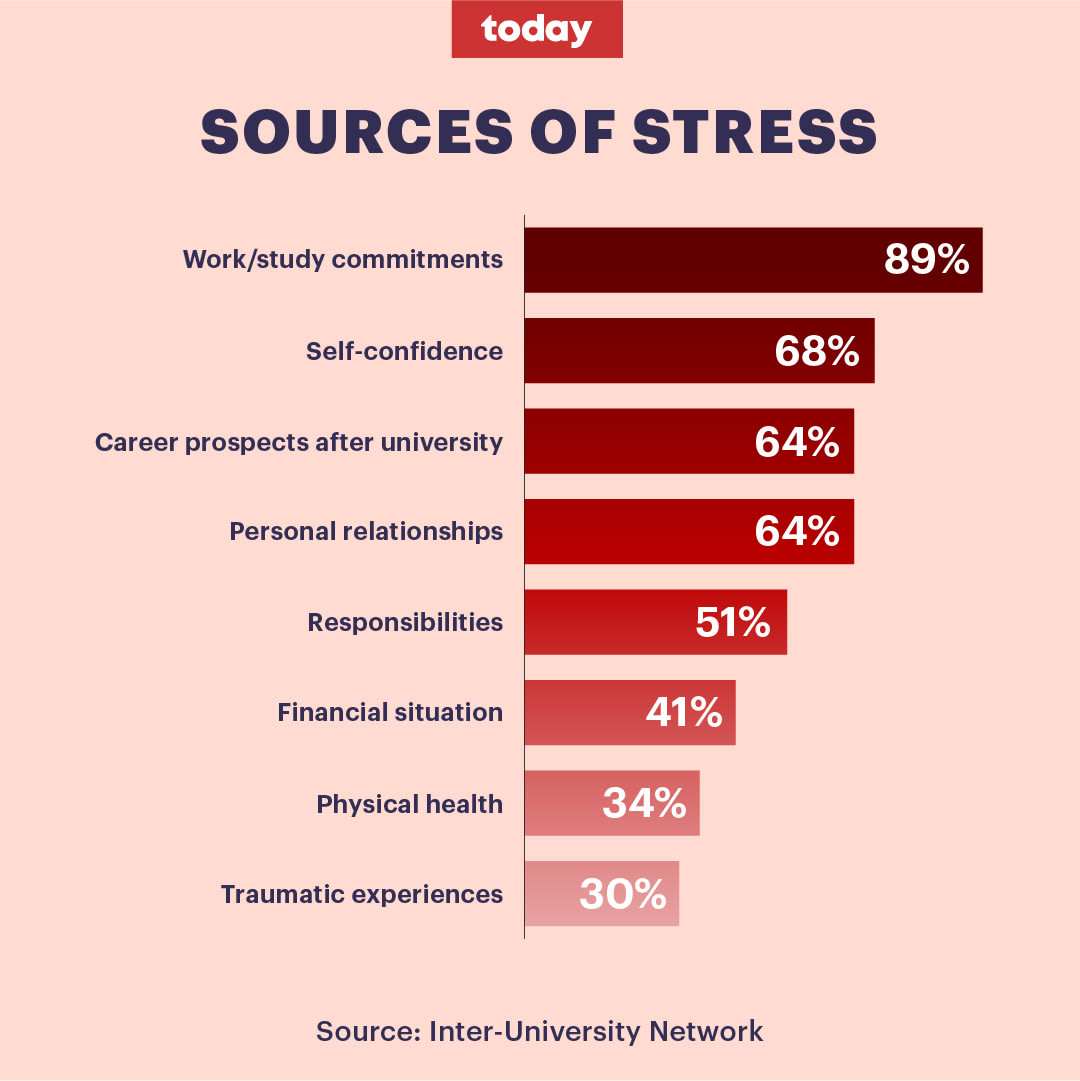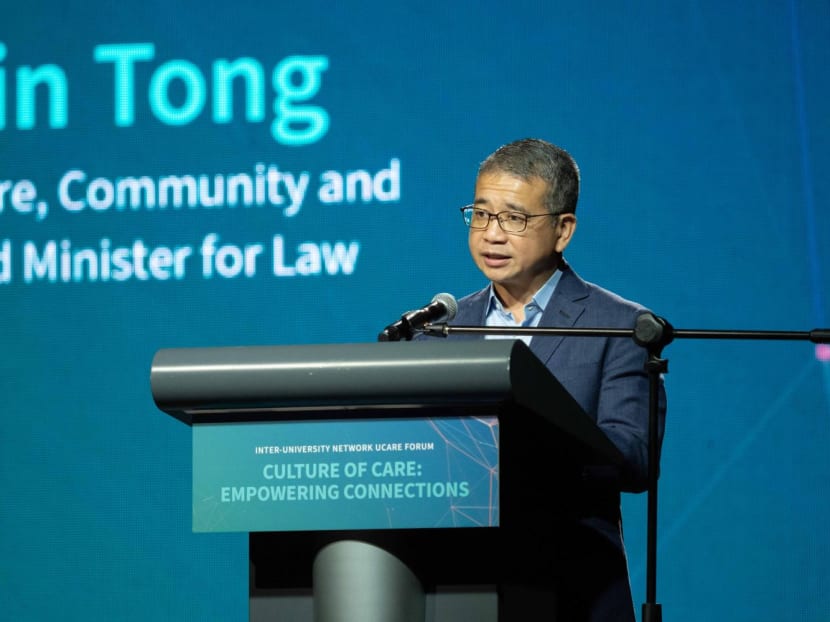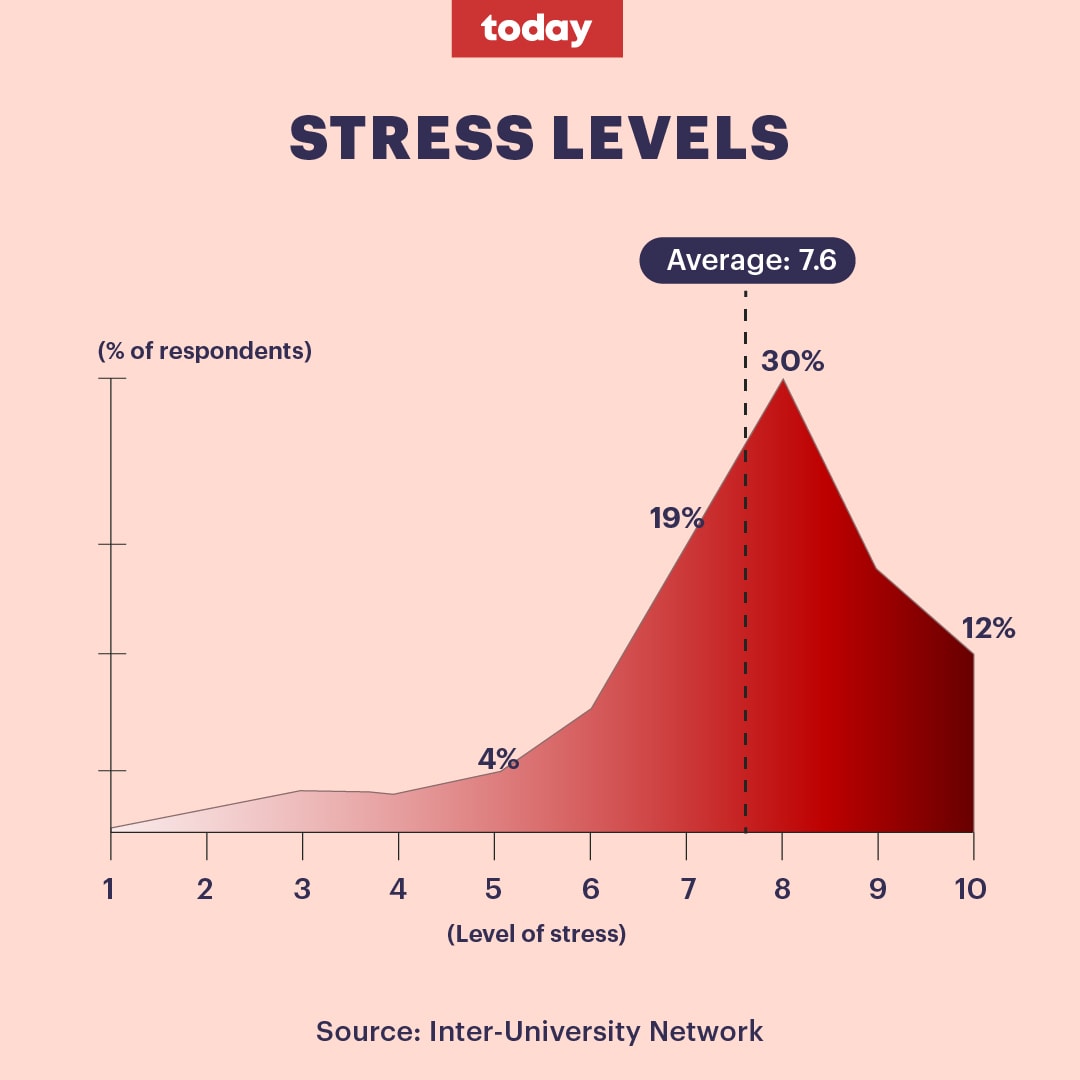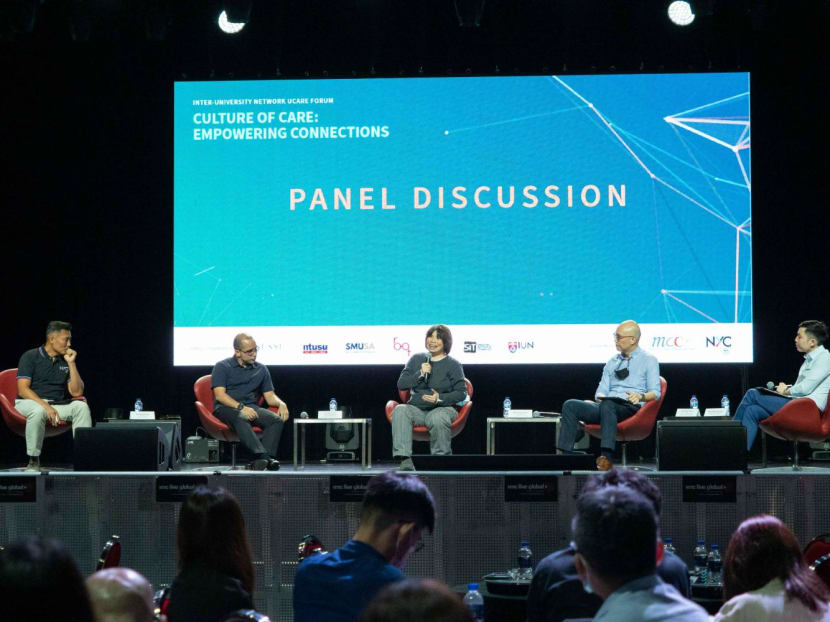Large-scale survey of S'pore undergrads finds work and study commitments as main stressors, desire for academic 'grace days'
SINGAPORE — Almost 90 per cent of undergraduates here said that work and study commitments were their greatest source of stress, a survey on mental health conducted by a network of university student unions showed.

Other sources of stress cited by the respondents were self-confidence, career prospects and personal relationships.
- A survey of undergraduates here found that almost nine in 10 cite work and study commitments as their greatest source of stress
- The survey polled 470 undergraduates at four autonomous universities here as well as Yale-NUS College
- Other sources of stress cited by the respondents were self-confidence, career prospects and personal relationships
- The survey was presented to Minister for Culture, Community and Youth Edwin Tong at the UCare Mental Health Forum on Tuesday (June 21)
- During his opening address, Mr Tong said that addressing mental health issues require "action at every level"
SINGAPORE — Almost 90 per cent of undergraduates here said that work and study commitments were their greatest source of stress, a survey on mental health conducted by a network of university student unions showed.
The poll by the Inter-University Network (IUN) also found that three in four respondents want greater support for their academics, which includes having grace days — "allowable delays beyond a specified deadline that can be applied to all assignments" — as well as helping students with learning disabilities and mental distress.
Respondents also indicated a desire for changes to academic policies, including increasing the degree of flexibility in the academic curriculum and allowing students to plan their academic pathway semester by semester.
"This is opposed to a system that constrains students in their selection of modules on the basis of fulfilling certain requirements, the IUN said in its survey findings. "By giving students this choice, it grants them more certainty in their journey as they are able to determine their own path."
The study, titled UCare Mental Health Report, involved doing a survey online and gathering responses from 470 undergraduates at four autonomous universities here as well as Yale-NUS College.
The UCare Initiative is also the IUN's first major project.
There were 22 questions asked and fieldwork done from April to May this year, with active sampling conducted through the use of an online platform.
The IUN represents some 65,000 students in Singapore and was launched in February to give voices to issues faced by undergraduates.
It is made up of five student unions in the National University of Singapore (NUS), Yale-NUS College, Nanyang Technological University (NTU), Singapore Management University (SMU) and Singapore University of Technology and Design (SUTD).
The report, which is not available to the public at the moment, was presented to Mr Edwin Tong, Minister for Culture, Community and Youth, during the UCare Mental Health Forum that was held at *Scape on Tuesday (June 21).
The forum was attended by more than 100 students and staff members from universities. The student representatives will be following up with their respective universities on implementing the recommendations.
The event ended with a panel discussion consisting of mental health experts.
Mr Nick Woo, an IUN-UCare representative who oversees data analysis at the NUS Students' Union (NUSSU), said: "Through this report, we have dug deep into what needs to be done to improve the mental health landscape within our universities, whether through academics, avenues of support or the culture within universities."
The survey also revealed that self-confidence, career prospects and personal relationships were also key sources of stress, ranking in second, third and fourth place respectively after the 89 per cent who ranked work and study commitments as the top stressors.
Work as defined by the undergraduates refers to part-time work or internships.

The findings indicated that undergraduates have a "deep-seated and unhealthy obsession with their grades" as academic grades are seen as a means to a job after their university education, the report noted.
The stress diminishes their joy of learning, with students focused on getting good grades and competing with their peers.
In his opening address, Mr Tong talked about the prevalence of a "hustle culture" among youth today.
"Hustle culture (is) where you strive to get the best job, get the best outcomes, get the best rates, and everything has to be the best. I think if you go downstream to a younger adult... you can understand why early signs of stresses start at the age 14," he said.
He added that addressing mental health issues requires "action at every level" and emphasised that there is no silver-bullet solution.


In its report, the IUN noted that grace days are adopted by several notable universities across the world.
Touching on the survey results and recommendations, Mr Darren Teng, an IUN-UCare representative from SUTD’s student government, Root, said: “Grace days offer a flexible way to handle academic concerns while combating the barrier of having to approach and confide in another individual. This is because grace days are not subjected to approval before they can be utilised.”
RESOURCES FOR HELP
Most of the IUN survey respondents (82 per cent) said that they were satisfied with university-led resources such as counselling services, mental health and wellness workshops. They felt that these services allowed them to feel heard and were accessible.
Respondents who were either not that satisfied or completely unsatisfied with such support said that a lack of quality and professionalism among the university counsellors was a reason.
Among the respondents who have not used such university resources, one in five said that it was because they had heard unsatisfactory remarks from others who had.
The IUN said: "While the number of students who have unsatisfactory experience with school mental health resources may not be a majority, the distrust of professional counsellors and school resources bred from such negative experience can have long-lasting impact on the belief in these resources, and can be difficult to tackle once ingrained within the minds of students."
Some ways to tackle this include providing feedback channels and systems for students to provide confidential and honest input on their counselling experience, the IUN added.
Under the segment on culture, which is one of the three pillars that support undergraduates’ mental well-being, the study found that undergraduates were concerned about being stigmatised should they seek mental health support.
Under the segment on resource, another pillar, a third of the respondents felt that there was a lack of information on student-led initiatives and workshops on self-care and mental wellness on campus.
During his opening address, Mr Tong said that there should be a normalisation of conversations on mental health and on seeking professional help.
"Don't be afraid to seek help when you need help. It is not a sign of weakness. It is not a sign of failure. And it is really something that we should promote and actively contribute to as a society."









